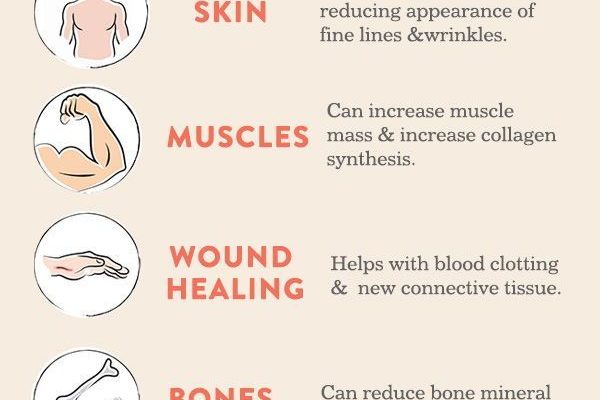The best collagen supplements – what are the benefits & do they really work?

Collagen supplements have become increasingly popular in the wellness community, drawing attention for their potential to improve skin elasticity, decrease joint pain, and contribute to overall health. Collagen is a protein that is integral to the connective tissues in our bodies – it’s found in our skin, bones, muscles, tendons, and ligaments. As we age, our bodies produce less collagen, which can lead to wrinkles, sagging skin, and joint issues. This decrease in production is what drives the appeal of collagen supplements; however, the question remains whether these supplements truly offer all the purported benefits.
One of the primary benefits associated with collagen supplements is improved skin health. Research suggests that collagen peptides – small pieces of collagen easily absorbed by the body – can help increase skin hydration and elasticity and reduce wrinkles. For example, one study showed that women who took a supplement containing hydrolyzed Type I collagen saw improvements in skin elasticity and a reduction in depth of wrinkles.
In addition to enhanced skin appearance, collagen supplements are said to aid joint health. Athletes have turned to these products with hopes of alleviating joint pain and preventing cartilage degeneration. Clinical trials provide support for these claims; for instance, one trial indicated that athletes experiencing joint discomfort had a significant reduction in pain after regularly consuming collagen peptides.
Those who take collagen may also find benefits for bone health. Because collagen gives bones their structure and strength, it could logically be presumed that supplementing with it would bolster bone density. Studies on postmenopausal women show increases in bone mineral density after taking these supplements regularly.
While there’s an array of studies supporting the efficacy of collagen supplements, skepticism exists partly due to variability in study designs and supplement formulations. Not all products are created equally – some contain different types of collagen or may not be hydrolyzed, impacting their absorption and effectiveness.
The market offers various forms of collagen supplements including powders, pills, and gummies. Marine (fish-based), bovine (cow-based), and porcine (pig-based) collagens are among the common types available. When choosing a supplement, factors such as sourcing, manufacturing practices (which impact product purity), additional ingredients (such as vitamins and minerals that can enhance absorption), and personal dietary preferences should be considered.
To conclude, while evidence points towards clear benefits from using collagen supplements for improving skin health, reducing joint pain, and possibly enhancing bone density, consumer vigilance is important when selecting a product. Consulting with healthcare professionals prior to starting any supplementation program is sensible particularly for those with pre-existing conditions or those taking other medications. As research continues to grow around these products’ efficacy and usage grow even more widespread their role within daily health regimes seems poised to expand significantly – signaling that perhaps they do have foundational merits within integrative healthcare practices.






